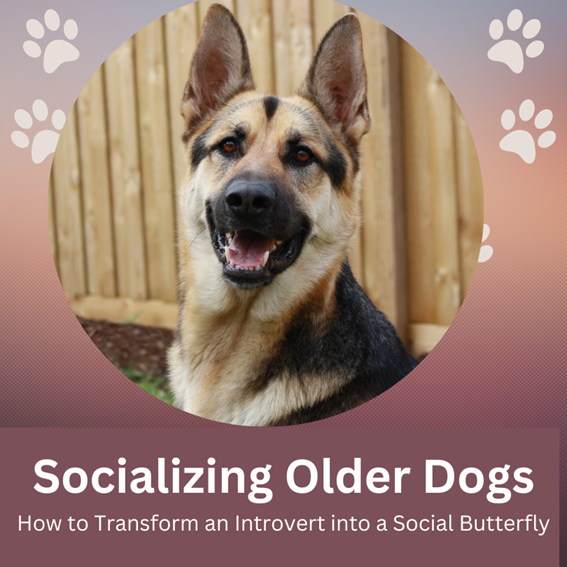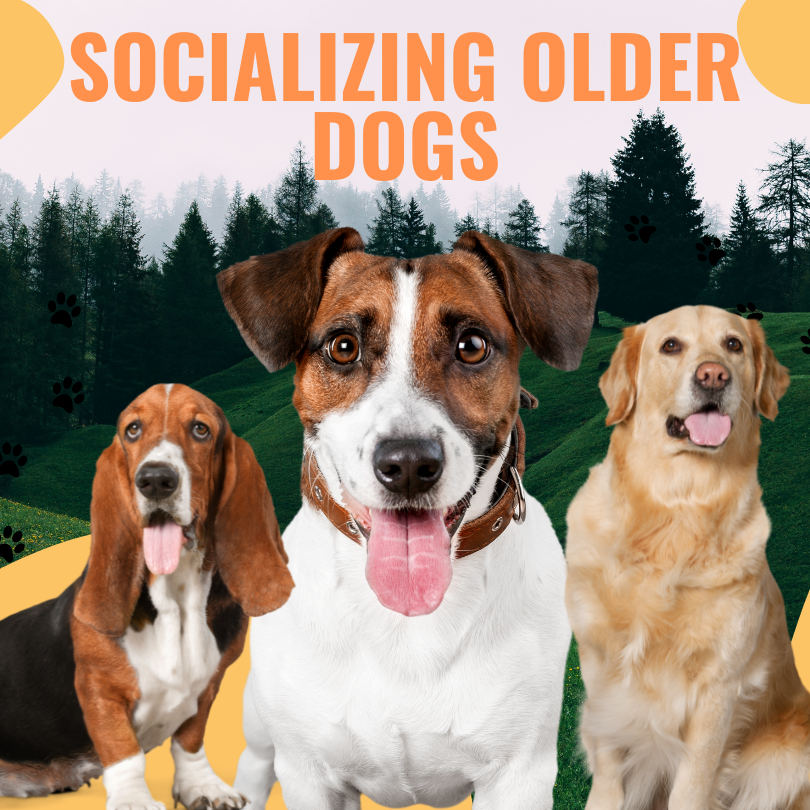Socializing older dogs is essential to ensuring their continued well-being and happiness as they navigate their senior years.
As beloved members of our families, older dogs deserve the same opportunities for social interaction and enrichment as their younger counterparts.
This guide will explore the importance of socialization for older dogs and provide valuable tips and strategies for helping them thrive in social settings.
If you’ve recently welcomed an older dog into your home or have had a faithful companion for years, understanding the benefits of socialization is vital to promoting their overall health and quality of life.
So, join us as we embark on a journey to enhance the social lives of our beloved senior canine companions.
Understanding the Importance of Socialization for Older Dogs
Socialization is not just for puppies; it’s an ongoing process that benefits dogs of all ages. For older dogs, socialization plays a crucial role in keeping their mental and emotional health. It helps prevent feelings of isolation and anxiety while keeping their minds sharp and engaged.
The Benefits of Socializing Older Dogs
Socialization offers many benefits for older dogs, including:
Mental Stimulation: Interaction with other dogs and people keeps older dogs mentally stimulated, preventing cognitive decline.
Emotional Well-being: Socialization provides companionship and reduces feelings of loneliness or boredom.
Behavioral Improvement: Proper socialization can help older dogs overcome behavioral issues, such as aggression or fearfulness.
Physical Health: Regular socialization activities, such as walks in the park or playdates, contribute to supporting physical health and mobility.
Tips for Socializing Your Older Dog
Start Slowly and Gradually
When introducing your older dog to new social situations, it’s essential to take things slow. Gradually expose them to new environments, people, and animals, allowing them time to acclimate at their own pace.
Choose Calm and Friendly Settings
Opt for socialization settings that are calm, controlled, and free from overwhelming stimuli. Avoid crowded or noisy places initially, as they may cause stress or anxiety for your older dog.
Use Positive Reinforcement
Reward your older dog with treats, praise, and affection when they exhibit positive behavior during socialization activities. Positive reinforcement encourages them to associate social interactions with pleasant experiences.
Incorporate Regular Socialization Activities
Make socialization a regular part of your older dog’s routine. Schedule walks in the neighborhood, visits to dog-friendly parks, or outings to pet-friendly establishments to provide opportunities for interaction and enrichment.
Supervise Interactions Carefully
Always supervise your older dog’s interactions with other animals and people, especially during the initial stages of socialization. Intervene if any signs of discomfort or aggression arise, and ensure a safe and positive experience for everyone involved.
Be Patient and Understanding
Remember that socialization can be a gradual process for older dogs, particularly if they have had limited exposure to new experiences in the past. Be patient, understanding, and supportive as they navigate unfamiliar situations.
Additional Resources for Socializing Older Dogs
For further guidance on socializing your older dog, consider exploring the following resources:
American Kennel Club (AKC) – Socializing Your Senior Dog
The Senior Dogs Project – Helping Your Older Dog Adjust to a New Home
Conclusion:
Socializing Older Dogs: How to Transform an Introvert into a Social Butterfly
Socializing older dogs is a vital aspect of ensuring their continued well-being and happiness in their senior years.
You must understand the importance of socialization and implementing the right strategies.
Of course, by providing support and patience, you can help your older dog thrive in social settings. Remember to prioritize their comfort and safety while gradually exposing them to new experiences.
With dedication and care, you can enrich your older dog’s life through positive social interactions and companionship.










